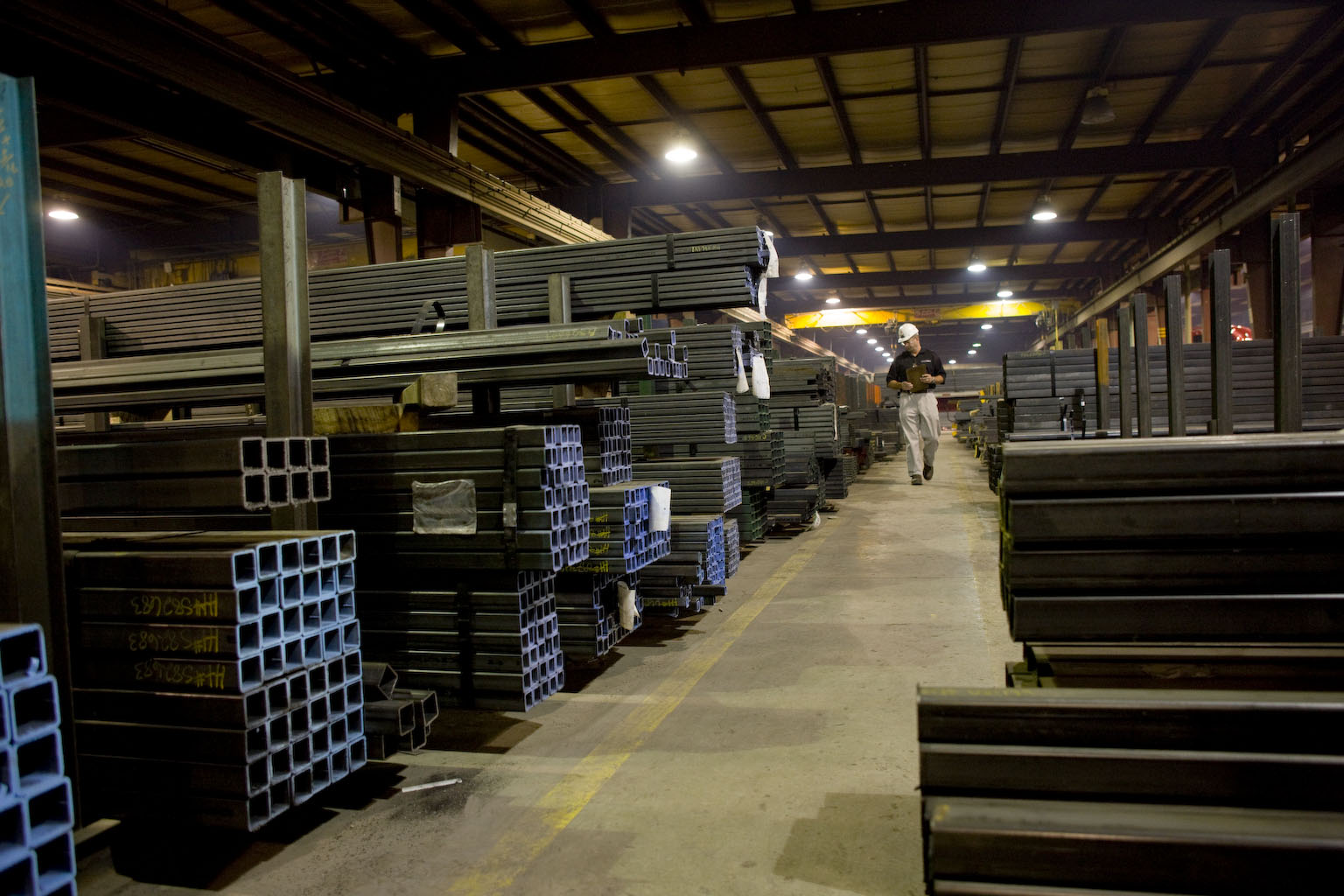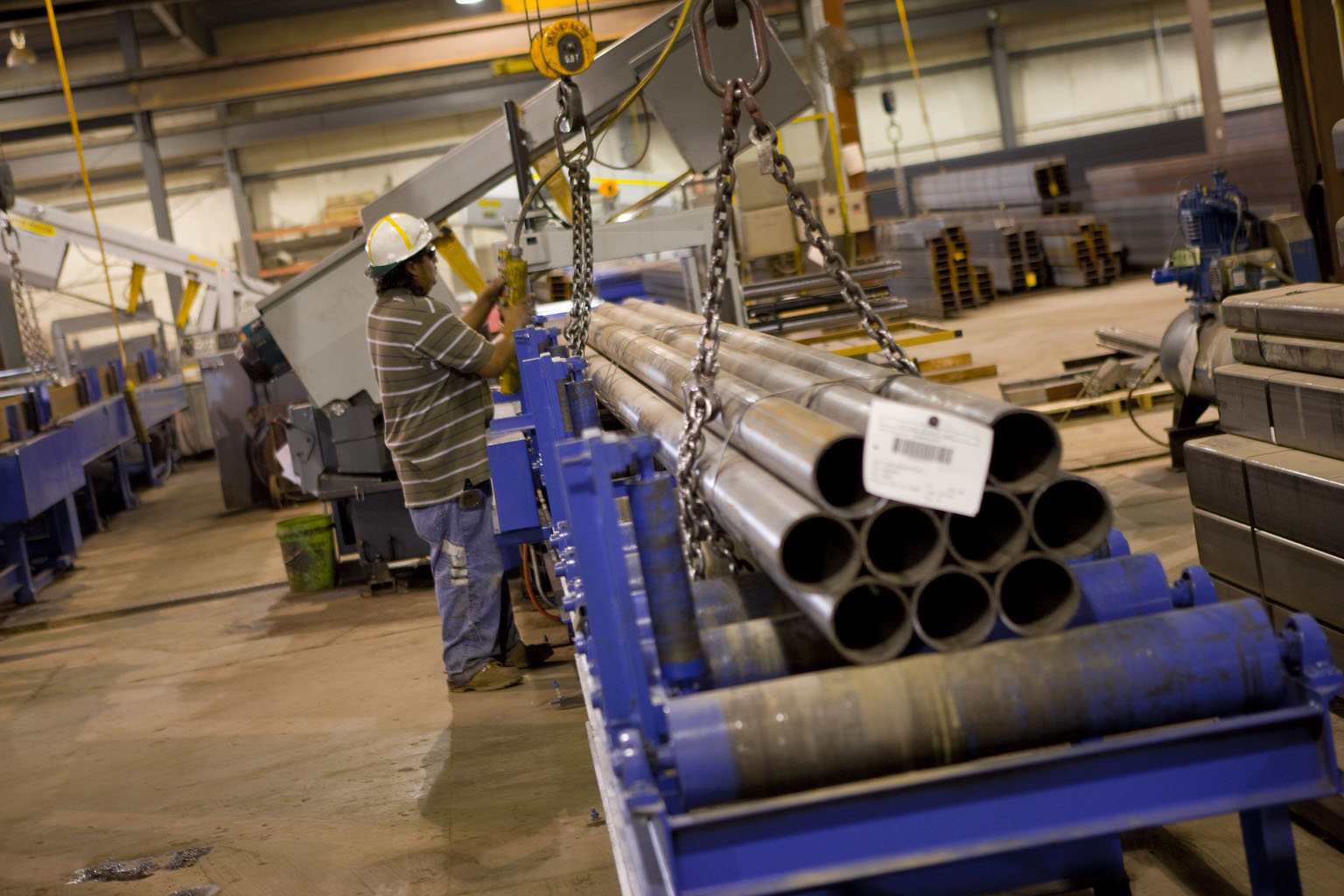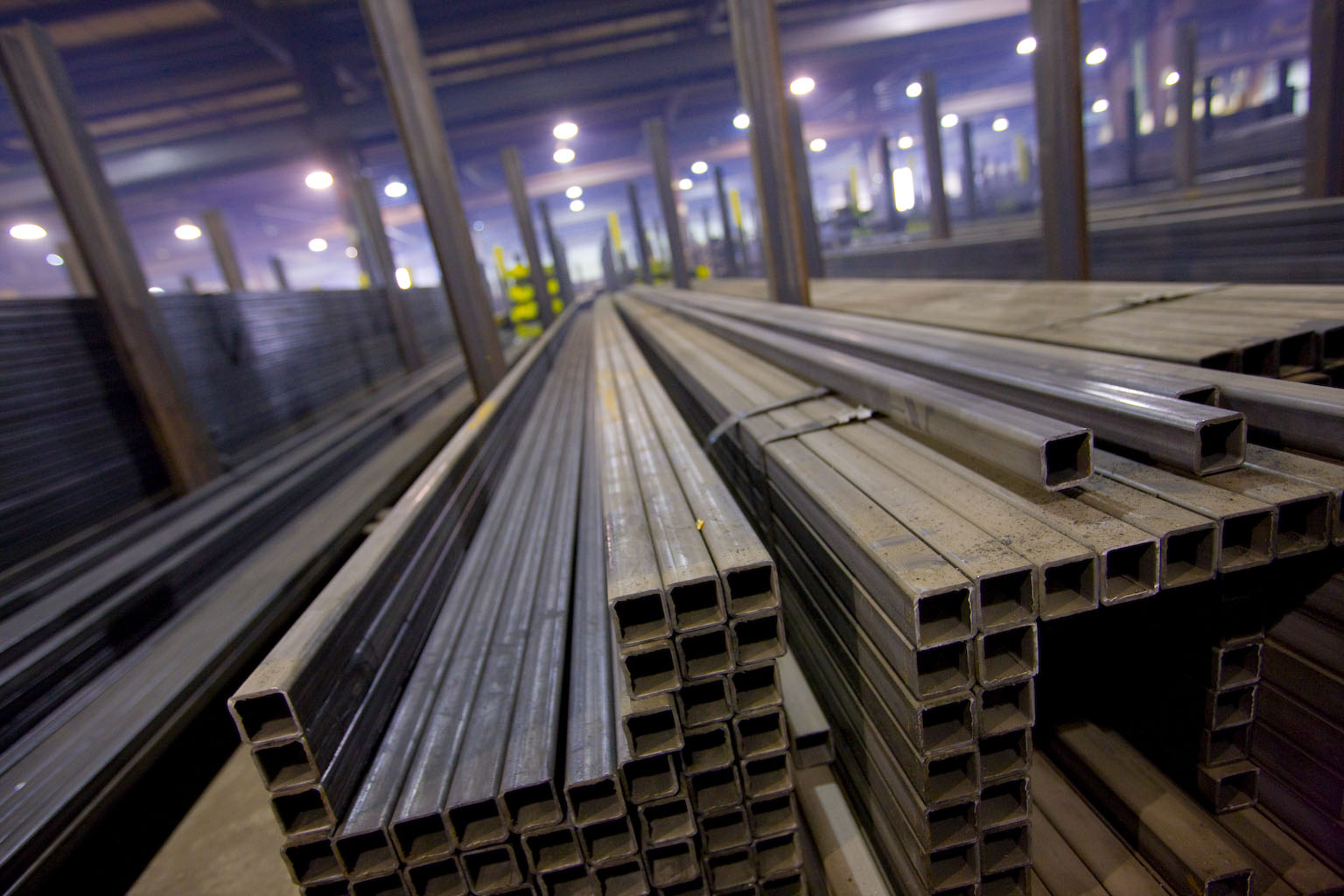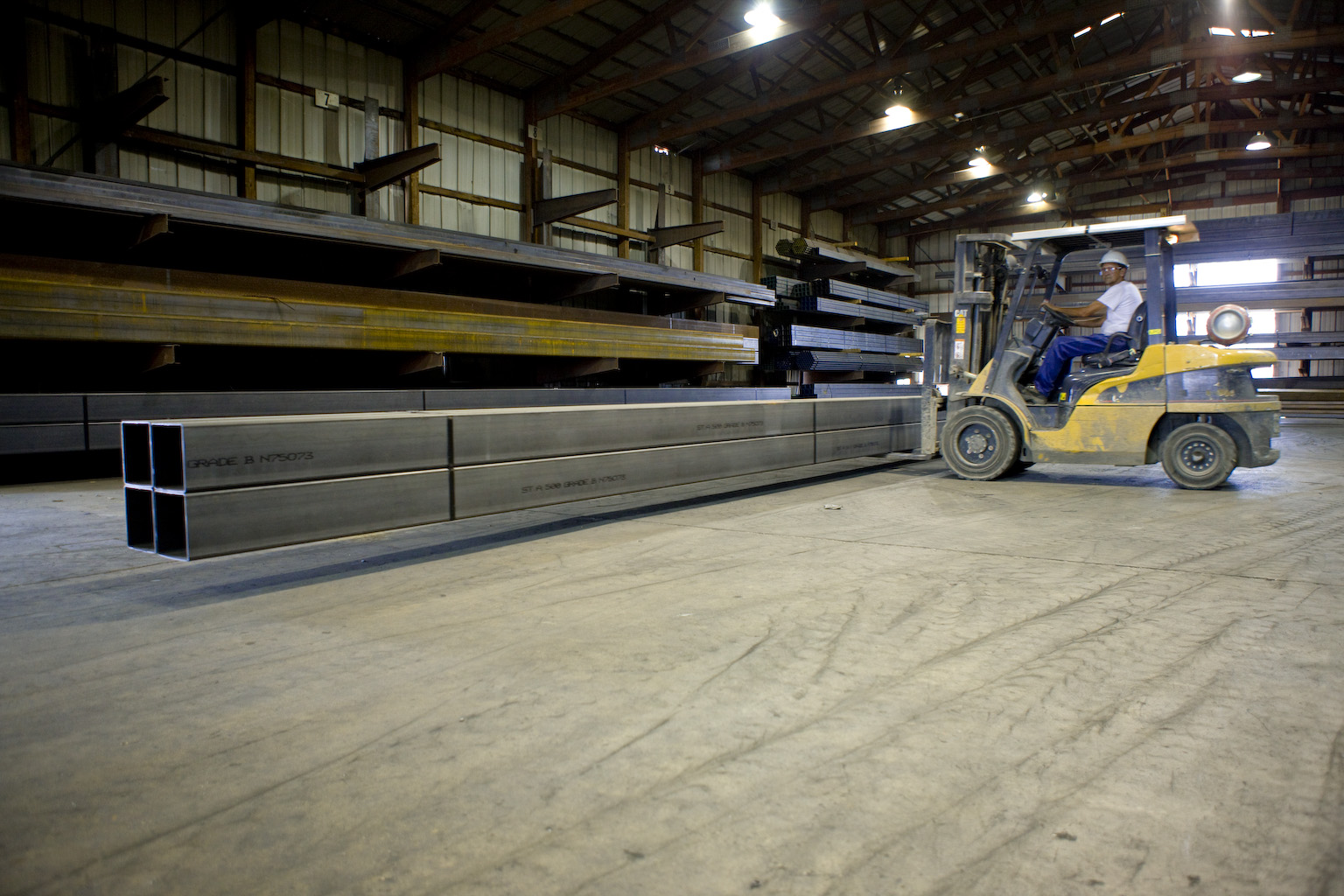AN OVERVIEW OF STANDARD STRUCTURAL STEEL TUBES
Structural steel tubes play a vital role in modern construction and manufacturing. A range of options, shapes, styles, and grades offer unmatched strength, versatility, and reliability to meet the demands of diverse applications. Selecting the appropriate steel tube helps your project deliver on both performance and durability.
ASTM A-500 Steel Tubes
Known for strength and adaptability, ASTM A-500 steel tubes are a top choice for load-bearing applications. These steel tubes can handle high-pressure environments and excel in structural assemblies and utility systems such as steam, water, and air transport. Their durability and consistent quality make them ideal for construction frameworks, bridge supports, and heavy-duty trailers. Whether supporting multi-story buildings or reinforcing industrial equipment, A-500 tubes provide dependable performance.
A-513 Steel Tubes
A-513 steel tubes combine versatility with cost efficiency, making them a familiar choice in many commercial and residential applications. These tubes are easy to fabricate, offering excellent machinability and weldability. A-513 steel tubes meet a range of design and structural needs while maintaining a sleek aesthetic in visible applications.
Type 2 Steel Tubes
Type 2 steel tubes thrive in harsh environments with enhanced corrosion resistance and superior strength. Coated to withstand environmental impacts, they are well-suited for outdoor applications such as fencing, railings, and signposts. Their durability and low-maintenance properties make Type 2 steel tubes a reliable choice for projects requiring longevity and structural integrity in challenging conditions.
The Right Steel Tube: Your Key to Reliable Performance
Choosing the right steel tube isn’t just about picking a shape or size—it’s about ensuring your project has the performance, durability, and reliability it demands. Structural steel tubes offer the perfect balance of strength and weight, making them indispensable for everything from heavy-duty frameworks to intricate design elements. When the stakes are high, selecting the right tube ensures long-lasting results in construction, manufacturing, and beyond.
LEARN MORE: CHOOSING THE RIGHT STEEL TUBE SIZES, TYPES, & GRADES
VALUE-ADDED: UNLOCKING POTENTIAL WITH STEEL TUBE FABRICATION
Custom fabrication services and capabilities add value by tailoring steel tubes to meet precise sizes and specifications. They’ll be ready to perform as soon as they arrive at your job site. These services save time, reduce waste, and improve efficiency, making steel tubing even more valuable on demanding projects.
Laser Cutting
Laser cutting delivers unparalleled precision for intricate designs and tight tolerances in steel tube specifications. This advanced and accurate process accommodates complex cuts and patterns, which is ideal for specialized applications.
Welding and Assembly
Welding performed by certified experts securely joins steel tubes together or to other components. Welding steel tubes and fabricating assemblies off-site reduces on-site labor and can significantly speed up project timelines.
Steel Finishing
Coating, painting, plating, and galvanization services protect steel tubes from corrosion and wear in harsh environments. Options like galvanization, powder coating, and wet painting add durability and extend the lifespan of steel tubes outdoors or in high-moisture conditions.
Drilling and Punching
Drilling and punching add holes or specialized slots for fasteners, bolts, or other hardware. Pre-drilled holes in steel tubes encourage on-site assembly, make installation easy, and perfect alignment among components.
Notching
Notching removes sections of a steel tube’s wall to ensure a precise fit with other structural elements. The process ensures stronger connections and simplifies assembly in complex frameworks.
Beveling
Beveling cuts the edges of steel tubes at an angle, improving weld integrity and allowing for tighter, more seamless joints. It’s a significant enhancement for strong, durable connections in steel tube fabrication.
Cutting and Mitering
Cutting steel tubes to specific lengths before they leave the supplier’s inventory minimizes waste and streamlines installation upon arrival. Mitering goes beyond a simple straight cut, adding angled cuts at precise degrees for seamless joints in frames, trusses, and other structures.
LEARN MORE: STEEL PIPE & TUBE CUTTING SERVICES & CAPABILITIES
STEEL TUBES VS. PIPES: IS THERE A DIFFERENCE?
Is there a difference between steel tubes and pipes? Absolutely. While they may look similar, their roles in construction and manufacturing are worlds apart. Pipes are the lifelines of fluid transport systems, while tubes are the backbone of structural integrity. Understanding these distinctions can make or break a project.
Pipes: Built for Flow
Steel pipes are purpose-built to transport fluids and gases. The inside diameter (ID) is their defining characteristic, as it determines how efficiently substances can flow through. Whether water, oil, natural gas, or industrial chemicals, pipes excel in environments where pressure and flow consistency are critical.
Thanks to their cylindrical shape, pipes evenly distribute pressure internally and externally, making them a staple in infrastructure projects like plumbing, HVAC systems, and oil pipelines. Their standardized sizing simplifies installation and replacement, but pipes are not designed to handle structural loads or the precision demands of high-performance applications.
Tubes: Strength Meets Precision
Steel tubes, in contrast, are all about adaptability and durability in structural and load-bearing scenarios. Unlike pipes, tubes rely on outside diameter (OD) and wall thickness to deliver the strength to support heavy frameworks or intricate machinery. With tighter manufacturing tolerances, tubes are the choice for projects that require precise dimensions and dependable performance.
What sets tubes apart is their versatility in their shape: round, square, or rectangular. Each option serves a unique purpose: round tubes excel in rotational or torsional applications, square tubes offer uniform load-bearing strength, and rectangular tubes shine in space-saving directional strength scenarios. Whether used in scaffolding, architectural frameworks, or advanced machinery, tubes deliver the customization and structural reliability that pipes simply can’t match.
The Real Question: Tubes or Pipes?
The question is not which is better. It depends on your project’s needs. Pipes are indispensable for systems that focus on fluid or gas transport, like underground water mains or HVAC systems. Conversely, tubes are best for applications where precision, strength, and flexibility are non-negotiable, such as automotive chassis, bridge supports, or modern architectural designs.
The line between tubes and pipes often blurs in industries where both are used. For example, the automotive sector relies on pipes for exhaust systems but depends on tubes for the structural integrity of roll cages or lightweight vehicle frames. Similarly, construction projects need pipes for utility transport and tubes to create robust frameworks. Understanding how these two materials complement each other can significantly improve project efficiency and durability.
Making the Right Choice
Choosing between steel tubes and pipes is a strategic decision. The wrong choice can lead to inefficiencies, added costs, or even performance failures. You can ensure success from the ground up by identifying your project’s specific needs—whether it’s the precision of a steel tube or the flow capacity of a pipe. Ready to dive deeper into the shapes and strengths of steel tubing?
LEARN MORE: WHICH STEEL TUBE SHAPE IS RIGHT FOR YOU?
STEEL TUBES POWERING PROGRESS ACROSS INDUSTRIES
Steel tubes are among the most adaptable materials across industries, providing unmatched strength and functionality with precision and versatility. Steel tubes’ flexibility for customization supports the success of infrastructure projects, manufacturing operations, energy production, and more.
Infrastructure and Utilities
Infrastructure projects demand materials that can handle high pressure and endure environmental challenges. Telecommunications towers and utility poles use steel tubes for their strength and stability, providing essential support for communication networks and electrical grids.
Bridge guardrails, light poles, and tunnel reinforcements further showcase the service possibilities of steel tubes. Various wall thicknesses and diameters allow precise tailoring to project requirements, ensuring long-term performance and safety in public works projects.
Manufacturing and Machinery
Manufacturing facilities rely on steel tubes for constructing machinery frames, conveyor systems, and equipment supports. For example, steel tubes are the backbone of automated manufacturing facilities’ robotic arms, and precision and accuracy are essential. Hydraulic systems, a mainstay in industrial machinery, use steel tubes for fluid transport under high pressure, guaranteeing reliability and minimizing the risk of system failure.
Steel tubes also provide structural support for shelving and racking systems, enabling the safe storage of heavy components. Their strength and ability to customize at specific lengths and other dimensions make steel tubes indispensable for efficiency and safety in manufacturing environments.
Automotive
Steel tubes contribute to structural integrity and lightweight design in the automotive sector. Vehicle chassis incorporate rectangular steel tubes to provide a sturdy framework while optimizing weight for fuel efficiency. Exhaust systems rely on round tubes for their ability to withstand high temperatures and corrosive gasses.
Roll cages that protect drivers in motorsports and off-road vehicles use steel tubes for their superior strength-to-weight ratio. Smaller components, such as brake line housing or steering columns, depend on precision-fabricated steel tubes to function safely and effectively under pressure.
Aerospace
Steel tubes must meet stringent weight reduction demands in aerospace, extreme temperatures, and high-pressure environments. Aircraft landing gear systems use high-strength steel tubes to bear substantial loads during takeoff and landing. Fuel lines rely on corrosion-resistant steel tubes to transport fuel efficiently with minimal weight.
Aerospace manufacturers trust steel tubes to provide reliability for critical applications under the harshest conditions imaginable. Rectangular steel tubes are often in the internal frameworks of satellite assemblies, where their structural integrity supports delicate instruments during spaceflight.
Energy
Steel tubes power the energy sector by supporting pipelines, wind turbines, and solar panel frameworks. In oil and gas, high-pressure pipelines use heavy-duty steel tubes to support and transport resources over long distances under internal and external stress.
Renewable energy systems benefit from steel tubes’ ability to withstand challenging environmental conditions. Wind turbine towers incorporate steel tubes for stability and height, while solar farms use galvanized tubes to support solar panels with minimal maintenance requirements.
Agriculture
Steel tubes support the construction of greenhouses, irrigation systems, and storage silos. Greenhouses use lightweight, corrosion-resistant steel tubes to form sturdy frames capable of withstanding wind and snow loads. Irrigation systems rely on steel tubes to help deliver water efficiently across large fields with durability against outdoor conditions.
Steel tubes are also essential in many livestock barns and equipment storage structures. Their strength and ability for customizations supporting easy assembly help farmers efficiently build reliable shelters. High-quality steel tubes provide long-lasting performance, minimizing downtime and maintenance costs for agricultural operations.
Material Handling
The material handling industry depends on steel tubes for conveyors, forklifts, and high-performance racking systems. Conveyor systems use rectangular tubes to handle continuous loads and resist bending, supporting smooth transport of goods across production lines and supply chains.
Forklifts incorporate steel tubes in their lifting arms and structural frames, providing the necessary strength to move heavy materials safely. Storage racks in warehouses use square and rectangular steel tubing for stability and durability, supporting efficient inventory organization.
Construction
Steel tubes are an instrumental component at construction sites across the country. Round steel tubes provide stability in scaffolding systems, supporting workers and equipment during high-elevation tasks. Square and rectangular steel tubes form the backbone of modular construction, offering flexibility for creating buildings quickly with pre-fabricated frameworks.
Architectural designs benefit from the clean lines and lasting strength of steel tubes, enabling innovative creations that balance aesthetic appeal and structural integrity. Whether supporting bridges, commercial buildings, or residential projects, steel tubes deliver the durability and precision necessary for success in modern construction.
LEARN MORE: RECTANGULAR STEEL TUBES RESHAPING MODULAR CONSTRUCTION




